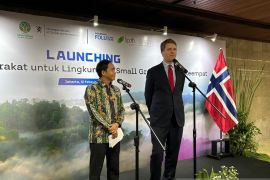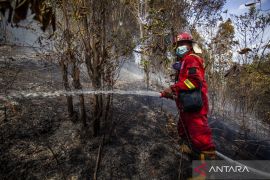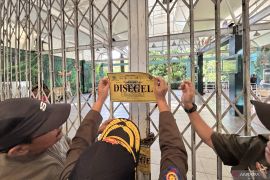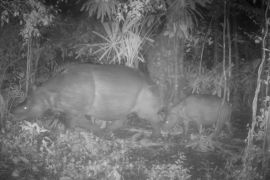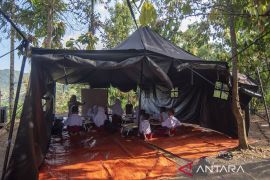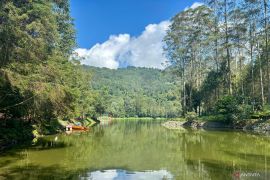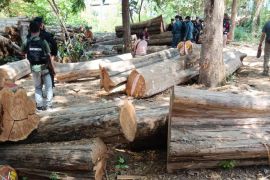"Indeed ramin tree fellings have happened but they are not done by APP. It was the mistake of suppliers who sold the wood to APP," he said to newsmen here on Monday.
He said based on initial evaluation by a team from the ministry of forestry it was found that APP pulp wood suppliers had cut ramin trees in Riau and Kalimantan but he affirmed that APP did not process ramin wood as paper materials but had put it aside as it has no economical values.
"Ramin wood is good for furnture because of its quality and strength. It does not mean that the paper would smell good when it is made of ramin wood. Meanwhile cutting ramin trees is not a criminal act," he said.
Darori said after reports about ramin tree felling by APP were publicized widely and sent to the police and the forestry ministry Greenpeace then seemed to be hands-off.
The foreign non-governmental organization headquartered in the Netherlands refused to participate in the team of investigation and become a witness, he said.
"I regret Greenpeace would not sit as a member of the team and become a witness in the case while it was them that had reported it. As the one that has reported the case Greenpeace should be ready to also become a witness. A witness could become a suspect if he gives a wrong testimony," he said.
In view of that Darori suspected that all the accusations made without strong evidence so far were about competition and APP has ever had an experience like that namely when its products were embargoed by Australia.
"APP tissue paper was once embargoed by Australia following the assucation that APP has cut trees in the natural forests. AfterI checked no trees had been cut in Jambi but the campaign had reached Australia that trees had been cut," he said.
To settle the ramin case he said the forestry ministry is still conducting a laboratory test to see if APP paper products really contain ramin wood.
"The Greenpeace had ordered someone to take a sample but it was no sure whether it came from APP concessionaires or other sources," he said.
A laboratory test has also been done by the Gajahmada University one or two years ago and the results showed that no ramin wood was found in the products.
He said the forestry ministry had also asked APP to apply for a permit when it wants to cut ramin trees. He said ramin is categorized as trees that could be cut with permit from the ministry of forestry.
"The permit policy is made to prevent ramin from being mixed. APP will also be required to develop ramin plantations," he said.(*)
Editor: Aditia Maruli Radja
Copyright © ANTARA 2012

